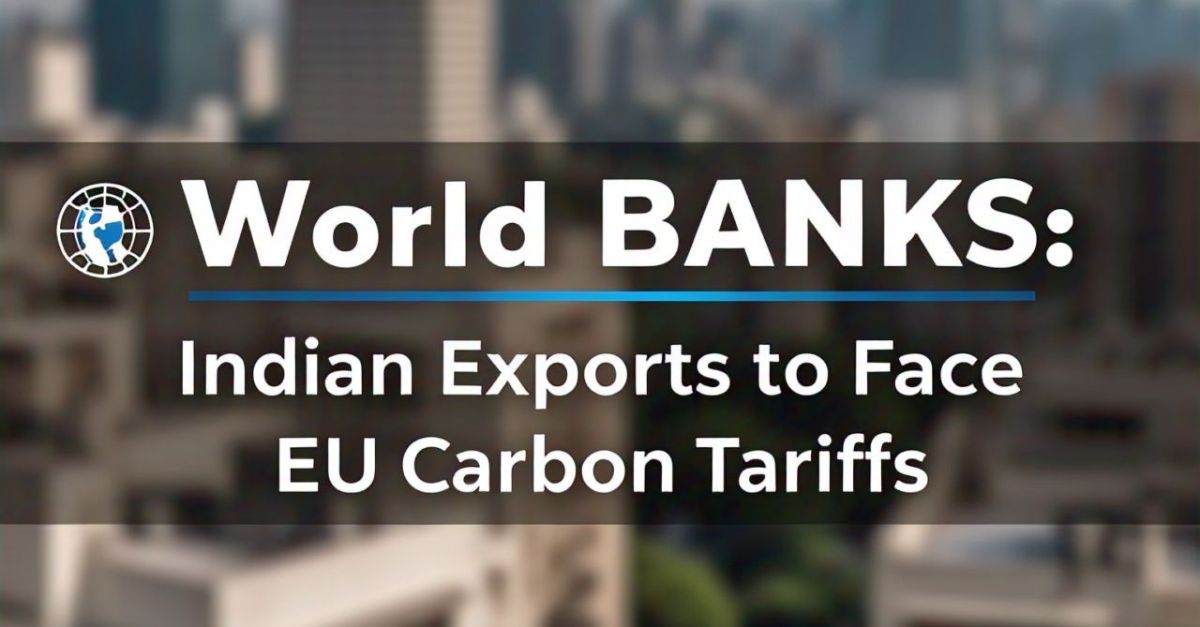India–US Trade Tensions Rise Over Steel and Auto Tariffs NMDC Limited reports a 38% drop in Q4 FY24 consolidated net profit RINL to Raise $23 Million Through Land Sales Amid Crisis

The European Union's new Carbon Border Adjustment Mechanism (CBAM) is set to impact Indian exports, particularly in the steel and aluminium sectors, according to Thomas Kerr, Lead Climate Specialist at the World Bank. The CBAM, aimed at reducing carbon emissions and preventing carbon leakage, will impose tariffs on imports from countries with less stringent carbon regulations.
Speaking at a recent event, Kerr explained that Indian exporters, especially in energy-intensive sectors like steel and aluminium, could face higher costs due to the new carbon tariffs. “Indian manufacturers need to adapt to stricter emission norms or risk losing their competitive edge in the European market,” he stated.
The CBAM, which is expected to come into effect in 2026, will initially focus on sectors with high carbon footprints, such as cement, steel, aluminium, and fertilizers. The policy aims to create a level playing field for European companies complying with the EU's stringent climate regulations.
Industry experts believe this move could push Indian companies to accelerate their transition to cleaner technologies. However, it also presents challenges, as the cost of adopting green practices is high. Indian exporters are urging the government to negotiate with the EU for a smoother transition.
With Europe being one of the largest markets for Indian steel and aluminium, the impact of CBAM could be significant. As the implementation date approaches, Indian exporters are closely monitoring developments and exploring ways to minimize the financial implications.
Also Read : India’s Steel Exports Up 12% in April on EU Demand Surge Indian Steel and Aluminum Exports Under Threat from US Tariffs